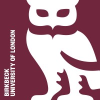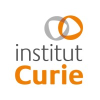PhD Position F/ M Framework for the Efficient Coupling Parallel Numerical Solvers and Deep Neural Networks on Supercomputers
Contexte et atouts du poste
The candidate will join the
Mission confiée
Context
The field ofAI4science is rapidly growing, focusing on the integration of deep learning-based techniques into traditional numerical simulations. This PhD position aims to investigate software solutions that enable the efficient and flexible coupling of deep models with highly parallel numerical simulation codes on supercomputers.
Deep Models are data-driven Neural Networks (NN) trained to approximate physical, chemical, or biological processes. Various deep model architectures have emerged, including classical CNNs and MLPs, as well as more advanced models like GNNs, DeepONets, Transformers, and Flow Networks. These models can incorporate physics knowledge through different modalities, such as data from observations, synthetic data generated by simulation models, or PDE equations as regularizer terms in the loss function. The goals of such deep models are diverse, ranging from error reduction through super-resolution, capturing uncertainties, to supporting the resolution of inverse problems. The deep model needs to be trained first, and then it can be used in inference mode, either standalone or coupled with a traditional solver.
ResearchObjectives and Challenges
The objective of this PhD position is to investigate software solutions that enable the efficient and flexible coupling of deep models with highly parallel numerical simulation codes on supercomputers. The research questions to be addressed include:
To address these challenges, the candidate will evaluate related work and existing coupling solutions, such as multiphysics code coupling, in-situ data processing, and workflow engines. The message passing parallel programming model supported by MPI is the standard approach for numerical simulation code parallelization, but the candidate will also consider alternative models, such as task-based and actor-based approaches.
The candidate will also consider different granularities of coupling, from one Deep Model instance being deployed at the level of each compute node up to having a single instance shared by all the code.
The choice is often dicated by the type and locality of data that need to exchange the simulation code and the Deep Model.
Previous work in the team investigated how to couple MPI simulation code with task based Python frameworks like Ray and Dask. Dask is a popular open-source library for parallel computing, which has been used for coupling MPI simulation codes (
Compétences
Candidates should have a Master in computer science, engineering degree or equivalent. PhDs in France are 3 years long and so the candidate will benefit from a 3 year contrat with INRIA to pursue her/his PhD and will get her/his PhD title from the Univ. Grenoble Alpes.
Candidates should have a strong taste for research with high technical and scientific skills, knowledge in machine learning, distributed/parallel computing. Good programming skills
(C/C++, Python, Linux) that will enable them to develop prototypes, design and run large scale experiments on supercomputers to demonstrate the qualities of their scientific contributions.
For that purpose you will have access to various academic supercomputers such as the Jean-Zay CPU/GPU machine (
Avantages
Rémunération
1st and 2nd year: 2082 euros gross salary /month
3rd year: 2190 euros gross salary / month











